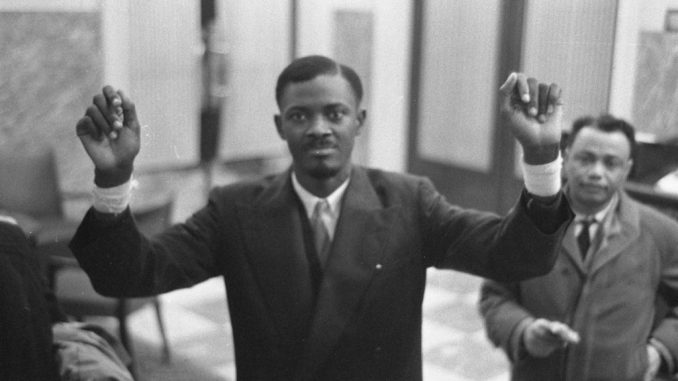
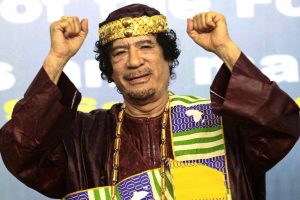
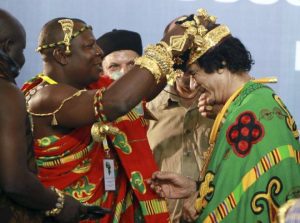
Commonly referred to as “Colonel Gaddafi,” Muammar Gaddafi was a Libyan revolutionary politician and president who ruled the North African country from 1969 to 2011, when he was assassinated.
Initially, he was ideologically committed to Arab nationalism and socialism, but later came to rule according to his own Third International Theory.
Gaddafi was born in 1942 in Sirte to a poor Bedouin family and became an Arab nationalist while at school in Sabha.
In 1963, he joined the Royal Military Academy in Benghazi, where he founded a revolutionary cell that helped him carry out a successful coup against the Western-backed Senussi monarchy of Idris in 1969.
Although he was widely celebrated for his anti-imperialist stance and firm support for Arab and African unity
Africa has come a long way with regard to fighting for freedom and democracy. Many Africans gave their lives for the sovereignty that the continent enjoys today. A lot of Africa’s revolutionary heroes and heroines were assassinated for their belief in the African dream of equality for all.
But despite their premature deaths, their legacies live on. It is on the firm foundation laid by these conquerors that the continent continues to grow. Here are the top five most celebrated African revolutionaries.
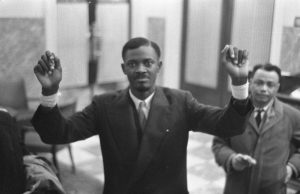
Patrice Lumumba, DR Congo
Patrice Emery Lumumba was a popular Congolese politician who served as the first Prime Minister of the Democratic Republic of Congo from June to September 1960. Lumumba was instrumental in the struggle for independence, leading the popular Mouvement National Congolais (MNC) party, whose objective was to achieve independence within the shortest time possible.
Soon after Congo gained independence from Belgium in 1960, Lumumba – an African nationalist and Pan-Africanist fell out with the then-president Joseph Kasa-Vubu for his unrelenting quest for the extermination of the Belgian-backed secessionist group called Katanga. He was eventually imprisoned under President Mobutu Sese Seko and later publicly executed by a firing squad under the instructions of Katangan authorities. He was only 35 years old when he died in 1961.
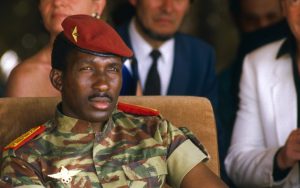
Thomas Sankara, Burkina Faso
Viewed as a charismatic, iconic and revolutionary leader, Thomas Isidore Noel Sankara was born in December 1949 in a small village called Yako in French Upper Volta (now Burkina Faso). Sankara’s star started to shine at the early stages of his life when he was named a captain in the Burkinabe military. He was less than thirty years old.
In 1983, Sankara led a popularly-supported military coup against President Jean-Baptiste Ouedraogo with the aim of fighting corruption and continued supremacy of the former French colonial power. Immediately after his successful outer of President Ouedraogo, Sankara launched an ambitious program for social and economic transformation, even renaming the country from the colonial Upper Volta to Burkina Faso, which means “Land of the Upright Man”.
His revolutionary approach to issues made him an icon to many Africans, especially the poor people. But he was soon overthrown and executed by President Blaise Compaore in 1987.
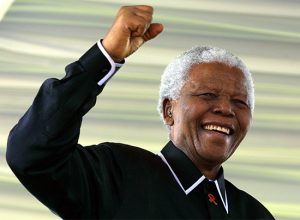
Nelson Mandela, South Africa
Considered by many as the father of South Africa, Nelson Mandela was the first black President of South Africa. He is remembered for his revolutionary quest for equality in South Africa, which suffered many years of apartheid rule. Since the early 1940s, Mandela led an anti-apartheid movement that brought to an end decades of racial discrimination against the black natives by the white colonialists.
During his reign, between 1994 and 1999, Mandela focused on destroying the legacy of apartheid by encouraging reconciliation between races and dismantling institutionalized racism. Although he was not able to completely eradicate racial hatred in South Africa, his efforts to unite the country and build cohesion enabled the Rainbow Nation to recover from the many years of hostility. Mandela died in 2013 aged 95.
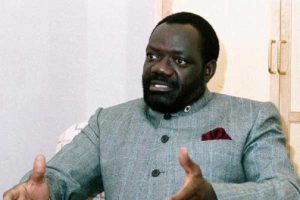
Jonas Savimbi, Angola
Until his death in 2002, Jonas Savimbi spent most of his years fighting for the total independence of Angola. After spending his early years in school amassing knowledge, Savimbi formed an anti-colonial movement calling itself the National Union for the Total Independence of Angola (UNITA), which first waged war against the Portuguese colonial rule between 1966 and 1974.
From a warfare tactic point of view, Savimbi is touted as one of the best and most effective military leaders of the 20th century. Schooled in China for many years, the mighty Savimbi was highly effective in organizing guerrilla combats against the colonial forces and local groups that hoped to rule the post-colonial Angola. His incessant attacks on the colonial system forced Portugal to relinquish power in Angola in 1975. After surviving numerous assassination attempts, Savimbi finally died in 2002 in a clash with the Angolan government troops that had spent years looking for him.
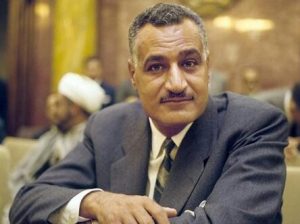
Gamal Abdel Nasser Hussein, Egypt
Born in 1918 in Alexandria, Egypt, Gamal Abdel Nasser Hussein was the second president of the North African country, ruling from 1956 until his death in 1970. He led the obliteration of the monarchy in 1952 and went on to introduce many far-reaching reforms especially in the land sector.
His popularity grew even bigger after his successful nationalization of the Suez Canal, as well as his political conquest in the ensuing Suez Crisis. Nasser’s attempts to resign in 1967 were met with nationwide protests as his supporters called for his reinstatement. He died of a heart attack in 1970 shortly after attending the Arab League Summit. His funeral brought the entire country to a standstill, drawing more than five million mourners from across the Arab world.
Although these African revolutionaries hailed from different parts of the continent and existed at different times, it is obvious that they were united by a common cause – a better life for every African.

Raila Amolo Odinga of Kenya